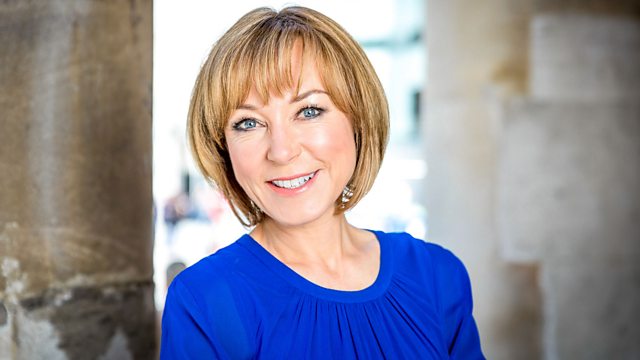
Episode 15
Sian Williams and guests debate the moral and spiritual issues, including whether Britain is racist and the use of genetic engineering to eliminate mitochondrial disorders.
Sian Williams and guests debate the moral and spiritual issues of the day.
Is Britain racist? Seventy percent of Britons say they are not racist, but police forces across the UK report significant increases in racially motivated hate crime. As October signals the start of Black History Month, a celebration of the impact of black culture in this country, has Britain successfully dealt with a racist past, or have old prejudices simply been redirected towards Muslim, Jewish and migrant communities? As part 大象传媒 Three's race season, a new documentary Is Britain Racist?, (transmitting on Monday 5th October), uses social experiments and pioneering research to examine how and if attitudes towards race and diversity in Britain have changed. Joining Sian Williams on the panel this week are: Darcus Howe, civil liberties campaigner and former chair of the Notting Hill Carnival; Jon Gaunt, podcast presenter; Myriam Francois-Cerrah, journalist and research associate at the Centre of Islamic Studies; Rosie Millard, columnist for the Independent and a novelist.
Also on the programme, Hardeep Singh Kohli talks to superstar songstress Mary Wilson of The Supremes about love, life and the lasting relationship with faith that saved her after the death of her son.
Should we be allowed to design our babies? At the end of October, Britain will be the first country in the world to legally allow the creation of babies from the DNA of two women and one man - a move that could prevent the inheritance of the potentially fatal genetic mitochondrial disorders. The ruling has opened debate about the ethics of genetic engineering and whether or not we know enough about the impact that gene editing technology will have on the future. Will genetic engineering eliminate deathly diseases from our babies' futures, or does it signal the slippery slope to eugenics? Should we be allowed to design our babies or, when it comes to having children, is it morally wrong to cheat nature? Sharon Bernardi suffered the devastating loss of seven children to genetically inherited mitochondrial disease. But the new regulations for the creation of babies using the DNA of two women and one man could potentially have prevented her family's heartbreak. Now, she welcomes the move and the impact it will have on other families having healthy children in the future. She shares her story with Sunday Morning Live. Joining the panel are: Sarah Norcross, director of Progress Education Trust and co-chair of campaign group Fertility Fairness; Rev Rose Hudson-Wilkin, Church of England vicar and chaplain to Parliament; and Dr David King, director of Human Genetics Alert.
Is religion a cure for loneliness? 'The root of so many contemporary situations is a kind of radical loneliness that so many people live in today' - parting words from Pope Francis as he concluded his American tour. Citing a culture of isolation that promotes distance instead of closeness, the pontiff believes we are misguided as we seek recognition from followers as opposed to affirming commitment to a community. Can religions help cure this ill? Or do organised religious groups only further promote a culture of 'us' and 'them' by ostracising outsiders? Our interactive presenter Tommy Sandhu investigates the levels of loneliness among people on the streets of Birmingham and finds out whether they value friendship over followers.
Last on
More episodes
Previous
Next
Clips
-
![]()
Should we be allowed to design our babies?
Duration: 03:00
-
![]()
Is religion a cure for loneliness?
Duration: 02:14
Credits
| Role | Contributor |
|---|---|
| Presenter | Sian Williams |
| Participant | Tommy Sandhu |
| Participant | Hardeep Singh Kholi |
| Interviewed Guest | Mary Wilson |
| Panellist | Darcus Howe |
| Panellist | Jon Gaunt |
| Panellist | Myriam Francois-Cerrah |
| Panellist | Rosie Millard |
| Panellist | Sarah Norcross |
| Panellist | Rose Hudson-Wilkin |
| Panellist | David King |
| Editor | Kuljinder Khaila |
| Producer | Muireann McGinty |
| Assistant Producer | Sarah Carson |
Broadcast
- Sun 4 Oct 2015 10:00




